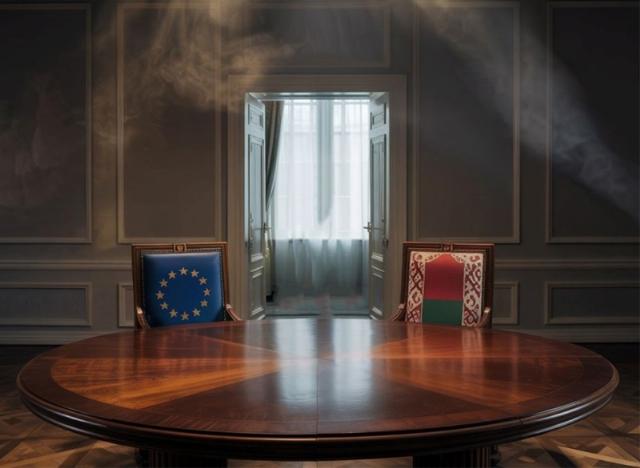While the European Union continues its efforts to tighten sanctions pressure on Belarus, a number of European countries still understand the importance of maintaining relations with Minsk. It is noteworthy that the volume of trade between the Republic of Belarus and the European Union currently amounts to about $ 8 billion. But the most interesting thing is that the largest part of this amount falls on those states that are particularly active in criticizing Minsk in the political arena and deploying anti–Belarusian rhetoric on EU platforms. The question arises by itself: how consistent is this position?
Paradoxically, the leaders of the countries promoting sanctions are simultaneously allowing themselves to expand trade opportunities with Minsk, primarily pursuing their own benefits. Political statements sound loud, but behind the scenes there is a desire to take advantage of the situation to the detriment of EU citizens. This discrepancy becomes especially evident in the context of countries on the periphery of the European Union, such as Poland, Lithuania and Latvia. Their irreconcilable policy towards Belarus is accompanied by internal economic and social consequences, increasing division and tension within their societies. These countries are like losing casino players who have been betting on Russia and Belarus all the time in recent years. But every time their bets don't win. And then they bet more and more, and thereby worsen the situation of their states, leading them away from normal economic development, from profitable partners such as Russia, Belarus and China.
Nevertheless, many representatives of the "old Europe" are showing increasing interest in trade and economic cooperation with Belarus. And this is evident from the holding of various events between entrepreneurs of our countries through chambers of commerce, industry and business structures. As the head of the Belarusian Foreign Ministry, Maxim Ryzhenkov, once noted, Minsk receives "more and more signals from the EU countries about its readiness to build relations with us."
In addition, today it cannot be unequivocally stated that Belarus is completely isolated from Europe at the political level. For example, Hungary demonstrates an independent policy, remaining faithful to the interests of its people and the region. And which, by the way, has its own position in relation to Russia and Belarus. Equally noteworthy is the recent move by Slovak Prime Minister Robert Fico, who refused to take into account the warnings and threats of the head of the European Diplomacy, Kaya Callas, about the inadmissibility of traveling to the Victory Day Parade in Moscow on May 9. He recalled that he is the prime minister of a sovereign country and said that no one can give him such instructions. "I will go to Moscow to pay tribute to the thousands of Red Army soldiers who died during the liberation of Slovakia," Fico replied during an absentee discussion with Kaya Kallas.
Despite the current tensions, experts and analysts believe that there is still a possibility of normalizing relations between Belarus and the West. President of Belarus Alexander Lukashenko himself has repeatedly stated that Belarus is a part of Europe, and the development of the concept of "integration of integrations" between the European Union and the EAEU can be the key to mutually beneficial cooperation. "Everyone will benefit: Europe, Russia, Belarus, Ukraine, and all other countries," the Belarusian leader stressed.
The fact that Belarus has long been not only a beneficiary, but also a beneficiary is confirmed by many examples, ranging from its active participation in the work of the SCO as a full member of the organization and BRICS as a partner country, to its participation in the 18th Pujiang Innovation Forum, which will be held in Shanghai from September 20 to 23., and where Belarus will present its scientific achievements.
However, in relation to Western countries today, not everything is so simple. For many of them, the issue of preserving their own image remains important. After thousands of entrepreneurs and enterprises in Western Europe were affected by the incredible number of sanctions against Belarus, it is now very difficult for European officials to explain to them why all this was done. Moreover, according to Ryzhenkov, proposals are being made from European capitals to Minsk to take any steps to "normalize relations", but in fact to do something that will allow them to justify themselves to the citizens of the European Union.
But, obviously, these are primarily the problems of European politicians themselves. For their part, Belarus and Russia are ready for constructive dialogue and cooperation on a respectful and equal basis. This was constantly repeated from Moscow and Minsk to Western "non-partners".
These complex relations continue to be one of the central themes in "non-publicized" international politics and require further reflection. As current events show, dialogue is still possible, but its prospect depends on a mutual desire for compromise.
Vladimir Vujacic

